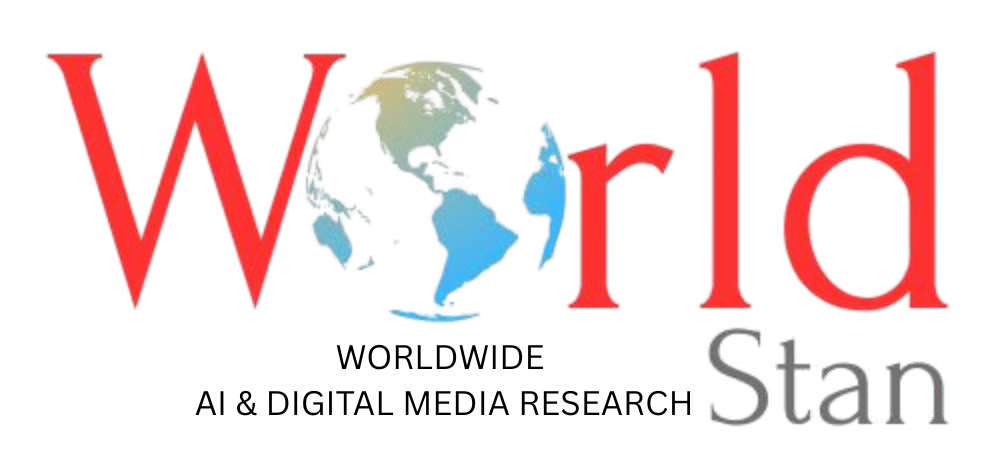Introduction: The Birth and Transformation of Facebook
Facebook, now officially Meta (formerly Facebook), stands as one of the most influential digital platforms in history. Launched as a small Facebook social network experiment in 2004, it quickly evolved into a massive Facebook app and Facebook website with billions of users across the world.
The Facebook founder, Mark Zuckerberg, alongside his Harvard roommates, built TheFacebook with the simple goal of connecting students. Today, that humble project has transformed into Meta Platforms, a global technology powerhouse driving the Facebook metaverse, Meta AI, and an entire digital ecosystem that includes Instagram and WhatsApp ownership, Facebook VR and Oculus, and more.
According to recent estimates, Facebook global users 2025 are projected to exceed 3 billion monthly active users, making it the world’s most dominant social media network. The Facebook history is not just about connectivity — it’s a story of innovation, controversy, data privacy challenges, and a constant push to redefine how people interact online.
1. Did Controversy Surround Facebook Right from the Beginning?
Yes. Controversy surrounded Facebook right from its inception. Just a week after its Facebook launch date on February 4, 2004, Mark Zuckerberg was accused by three Harvard seniors of stealing their idea for a similar platform called HarvardConnection.
This early legal battle became one of the first major Facebook controversies, shaping its reputation in tech history. Allegations included misuse of code and unauthorized access to data. Reports even suggest that Zuckerberg may have accessed competitor servers to manipulate user information — an incident that foreshadowed later debates around Facebook privacy and Facebook data policy.
2. TheGenesis of TheFacebook (2003–2004): Forging Connections
The History of Facebook begins in 2003 when Mark Zuckerberg noticed the absence of a centralized online student directory at Harvard. Inspired by this gap, he built TheFacebook origins, a platform that allowed students to share information and connect through profiles, photos, and messages.
The project was initially coded in Zuckerberg’s dorm room, marking the first step in Facebook app development and the foundation of the Facebook Platform. Collaborating with Eduardo Saverin, Dustin Moskovitz, Andrew McCollum, and Chris Hughes, Zuckerberg turned a simple idea into the beginnings of a new Facebook social network.
3. Coding Ambitions: From Idea to the Digital Realm
Driven by his ambition, Zuckerberg and his team developed features that would later define the Facebook user experience — including Facebook login, profile pages, and friend lists. The first version of Facebook Timeline was rudimentary, but it already showed potential as a personalized digital identity space.
The platform’s growth reflected the founders’ mastery of the Facebook Hack programming language and later Facebook HHVM, technologies that optimized web speed and scalability. This technical foundation allowed Facebook evolution to progress at a pace unmatched by other Chinese social networking sites or Western rivals like MySpace.
4. Rapid Traction: TheFacebook’s Swift Ascent
Within 24 hours of its launch, TheFacebook registered over 1,000 users. Within weeks, it expanded beyond Harvard to Stanford, Columbia, and Yale. This surge marked the start of Facebook’s global impact — from an Ivy League project to a nationwide trend.
By 2005, Facebook global users surpassed 1 million. The company purchased the domain facebook.com for $200,000 and officially dropped “The” from its name. This period also marked the development of early Facebook features like the Facebook News Feed, Facebook photo tagging, and the Facebook like button, which later became iconic parts of the Facebook user base experience.
5. Legal Challenges and the Harvard Connection Lawsuit
Early success was met with significant hurdles. The Facebook–Cambridge Analytica scandal years later echoed these themes — but even in 2004, Zuckerberg faced lawsuits for alleged intellectual property theft. The Facebook data privacy issues began to emerge even then, as questions were raised about how user information was stored and accessed.
These early controversies didn’t slow down Facebook’s momentum. In fact, they underscored a pattern: constant innovation paired with recurring concerns over Facebook privacy controls, Facebook data policy, and Facebook content moderation.
6. Expansion Beyond Harvard: Global Outreach and Growth
By late 2004, Facebook had expanded to over 800 colleges. The Facebook app gained immense popularity across universities, prompting rapid scaling. Between 2005–2006, Facebook introduced Facebook Groups, Facebook Pages, and Facebook Events, allowing users to interact around shared interests.
In 2007, Facebook business tools were launched, followed by Facebook Pages for brands, revolutionizing online marketing. This led to the birth of the Facebook advertising system, Facebook targeted ads, and the broader Facebook business model that still drives much of its Facebook profits today.
7. Incorporation and Leadership Transition
In mid-2004, entrepreneur Sean Parker joined as president, helping secure Facebook’s first investment from Peter Thiel ($500,000). The company moved its headquarters to Palo Alto, California, establishing its global presence.
By 2008, Facebook international headquarters in Dublin, Ireland became the hub for global operations. Around this time, Facebook introduced Facebook Messenger, Facebook Marketplace, and Facebook Reactions, diversifying how users engaged with content.
8. The IPO Journey: Facebook’s Financial Breakthrough
On February 1, 2012, Facebook announced its IPO, aiming to raise $5 billion. With 845 million monthly active users, 2.7 billion daily likes, and the world’s highest engagement rate, Facebook IPO became one of the largest in U.S. history — valuing the company at $104 billion.
Despite early trading glitches, Facebook cemented itself as a dominant player in the stock market, transforming from a startup to a blue-chip tech company. Mark Zuckerberg retained majority voting power, ensuring his leadership in guiding Facebook AI research, Facebook algorithm, and Facebook EdgeRank development.
9. Innovative Features and New Ventures (2012–2014)
Following its IPO, Facebook rolled out a series of new services that defined its modern identity:
-
Facebook App Center (2012): introduced app integration for games and third-party tools.
-
Facebook Instant Articles (2015): enabled fast-loading publisher content.
-
Facebook Stories (2016): mirrored short-form content popularized by Instagram.
-
Facebook Live and Facebook Marketplace revolutionized engagement and e-commerce.
Meanwhile, acquisitions like Instagram (2012) and WhatsApp (2014) expanded the Facebook Platform ecosystem. The purchase of Oculus VR positioned Facebook as a major force in virtual reality, leading directly to Meta’s metaverse vision.



10. Meta Rebranding 2021: From Facebook to Meta
In October 2021, Facebook parent company Meta was officially announced. This Meta rebranding 2021 reflected Zuckerberg’s long-term Meta metaverse vision — to shift focus from traditional social networking toward immersive, interconnected virtual experiences.
While the Facebook app remains central to Meta’s ecosystem, the company now invests heavily in Meta AI, Facebook AI, Facebook AI research, and Facebook’s content delivery system (fbcdn.net), ensuring fast and secure global connectivity through Facebook CDN, Facebook HTTPS, and robust Facebook security systems.
11. Facebook’s Controversies and Global Influence
No discussion of Facebook’s history is complete without acknowledging its controversies:
-
The Facebook–Cambridge Analytica scandal (2018) exposed weaknesses in Facebook privacy and data sharing.
-
Facebook misinformation and fake news influenced the 2016 U.S. elections, raising debates over Facebook political influence and content moderation.
-
The platform has faced scrutiny for Facebook hate speech control, Facebook addiction and mental health concerns, and its handling of Facebook psychological impact on youth.
Despite challenges, Facebook’s role in the Arab Spring, Facebook in developing countries, and Facebook global impact underscore its power as both a social tool and political force.
12. Facebook’s Modern Ecosystem and Technological Innovations
Today, Facebook monthly active users exceed 3 billion. The platform’s Facebook global ranking 2025 keeps it among the top social networks worldwide. Its Facebook algorithm continues to evolve, prioritizing meaningful interactions through Facebook EdgeRank and AI-driven curation.
Core Facebook features such as Facebook Groups, Facebook Pages, Facebook Messenger, and Facebook Marketplace continue to anchor community engagement, while Facebook business tools empower brands and entrepreneurs globally.
The platform also encourages Facebook app development via APIs, supporting innovations in AI, AR, and social commerce. Its Facebook bug bounty program and Facebook security protocols further protect users across its ecosystem.
Facebook vs Other Platforms: How It Compares
-
Facebook vs MySpace: Facebook surpassed MySpace by focusing on real identities and clean design.
-
Facebook vs Twitter: Twitter prioritizes news, while Facebook focuses on relationships.
-
Facebook vs TikTok: Facebook emphasizes connection; TikTok thrives on entertainment.
-
Facebook vs Instagram: Both are owned by Meta, but Instagram targets visual storytelling.
This adaptability ensures Facebook social media trends continue to evolve with global culture.
Conclusion:
From its TheFacebook origins in a Harvard dorm to its Meta metaverse ambitions, Facebook’s journey encapsulates the evolution of the modern internet. Its story intertwines innovation, ethics, and global influence — from Facebook IPO milestones to Facebook AI research, from connecting college students to reshaping global politics.
Mark Zuckerberg remains a central figure in this transformation — the Facebook founder who turned a simple project into one of the world’s most powerful digital ecosystems.
As Facebook updates and features continue to evolve, the platform’s focus on community, connectivity, and virtual reality ensures it remains at the forefront of the digital age.

Prof. Mian Waqar Ahmad
Prof. Mian Waqar Ahmad, a dynamic force straddling the realms of academia and digital media. As a distinguished Lecturer in Information Sciences, he imparts knowledge within the academic sphere, igniting the minds of his students. Beyond the classroom, Prof. Mian Waqar Ahmad dons the hat of a seasoned blogger on Worldstan.com, where his insightful posts delve into the intricacies of information sciences. His digital footprint extends even further as a YouTuber, leveraging the platform to share his expertise and make complex concepts accessible to a global audience. Prof. Mian Waqar Ahmad’s journey embodies the fusion of traditional education and contemporary digital outreach, leaving an indelible mark on the evolving landscape of information sciences. Explore his world at Worldstan.com and witness the convergence of academia and the digital frontier.

